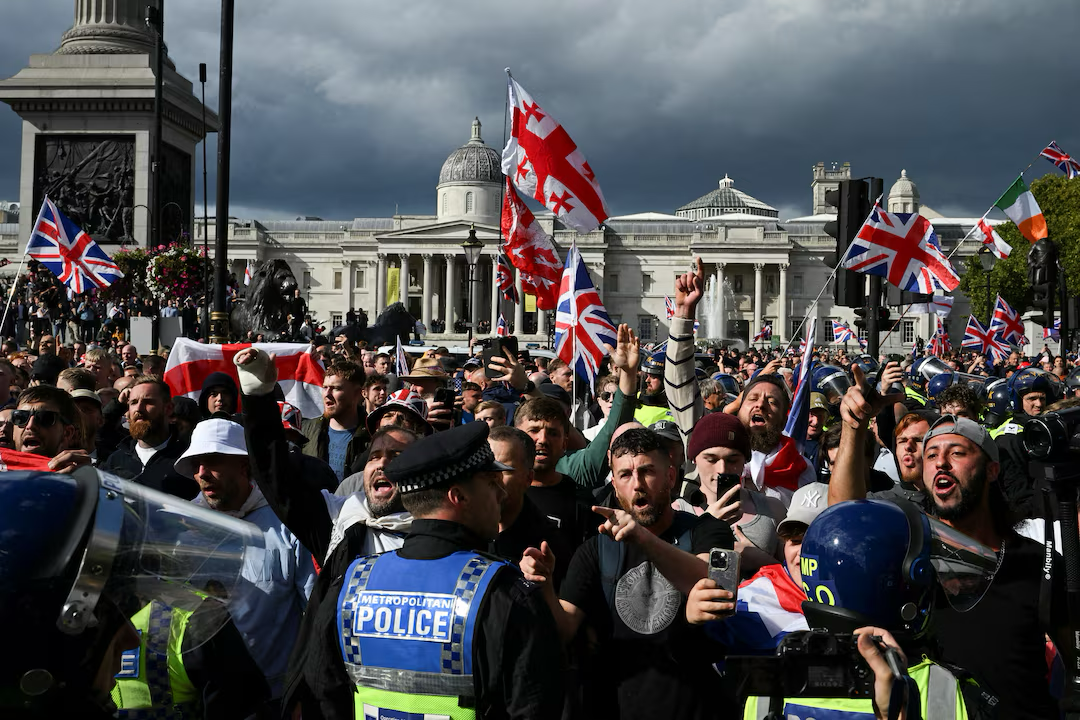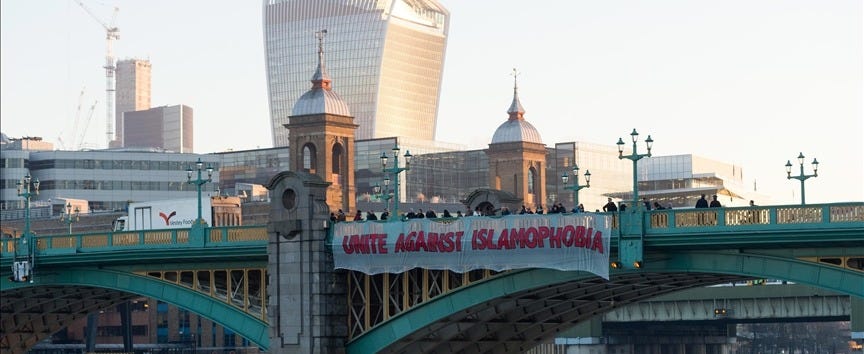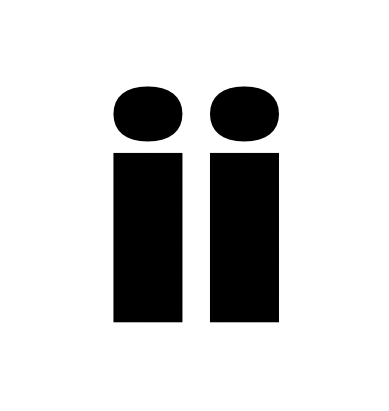The New Face of Islamophobia in Britain.
The time of sword-bearing crusaders has long gone, but the struggle against Islamophobia remains. Today, a rather more insidious form of Muslim hate has fleeced itself into the British mainstream; and this time, he wears a suit and portrays his vitriol as concern.

Published by FOSIS on Oct 31st here
The time of sword-bearing crusaders has long gone, but the struggle against Islamophobia remains. Today, a rather more insidious form of Muslim hate has fleeced itself into the British mainstream; and this time, he wears a suit and portrays his vitriol as concern. Flag crazed, nationalistic pundits now frequent the mainstream media and are direct reflections of the contemporary, political state of Britain. These figures are neither few nor far between and now occupy varying expanses of the British media. I have found that their slogans of hate masquerade as seemingly ‘respectable forms’ of racism. This sentiment echoes across various levels of public life namely news, politics and especially media.
Your morning news anchor, or favourite online commentator (I, myself, struggle with knowing who to trust more) may often express their concerns regarding ‘poor integration’ or ‘domestic security’ or, even, the maintenance of ‘British Values’. If so, let us decipher whether these buzz words and phrases are pernicious, subtle and obviously racist forms of ostracisation or if these broadcasters are truly concerned with the state of Muslims and their contribution, or alleged harm to this country.
Prejudice has often disguised itself as rhetoric of patriotism or free speech. Prejudice can be polished, polite and couched as a reasonable concern, maybe it appears on Facebook or a morning talk show or from your local MP or even as conversation around the office coffee machine. The quiet discouragement of hijab in society, the debate panel that introduces the Muslim guest as ‘moderate’ as if most of us are not, anti-Muslim hate concealed as ‘community tensions’ or ‘struggled integration’ are all symptomatic of a palsy inflicted on this mainstream, political media machine. We have seen Medieval Islamophobia in the Crusades become colonialism and then Orientalism and then the rise of varying political ideologies such as Britain First who campaigned against the supposed “Islamisation of Britain” and then the BNP and more recently the EDL, with whom we are all familiar. Today we can sense a palpable rise in the same beliefs. Coming onto some facts regarding the rise in anti-Muslim hate (Islamophobia) shortly, I wish to first contextualise the current media and political climate that have nurtured this.
UK media research (via the Centre for Media Monitoring and The Muslim Council of Britain) found that 59% of online articles associate Muslims with negative behaviour, with terrorism and extremism being a primary theme (The Independent, 2021). Another report from 2024 discusses GB News’ contribution to negative framing of Muslims utilising language such as ‘trojan horse’ or ‘threat’ (AA, 2024). Furthermore, the political landscape has shifted greatly, where now conversations of poor social integration have become discussions on national security and risk. A computational analysis on parliamentary discourse by Cornell University highlights this shifting of the Overton window (Framing Migration: A Computational Analysis of UK Parliamentary Discourse, 2025). And all of this matters because when our politicians and media use language that frames Muslims as separate and suspect, when they claim Muslims pose a threat to national identity and security, it reinforces societal division and incites both institutional and interpersonal prejudices, we are all seeing the consequences of today.

Islamophobia is not separate from xenophobia or racism, rather it’s a convenient repackaging of the same prejudices. The aforementioned emotional manipulation from the media has directly targeted working class insecurities and the post-Brexit uncertainties of housing and living costs, diverting reasonable frustration away from these real issues of austerity. The linguistic decisions in showcasing the immigration issues in the UK have directly utilised the same post 9/11 and 7/7 sentiments, instilling fear and fostering social schism. But behind each word of every headline there is a human cost. Muslim women are being harassed for wearing hijab, as reported by The European Union Agency for Fundamental Rights an increase in violence against Muslim women based on their race or religion has gone from 39% to 47% in the last decade. A countless array of mosques have been vandalised, arsoned, defaced and attacked. An unfathomable spike in anti-Muslim hate crimes, a 20% increase over the last 12 months, it shows us how media and news reporting trickle down into the streets resulting in tangible damage to real people.
And the psychological burden is yet to be truly understood. Young Muslims are increasingly internalising ideas of hate, inferiority and fear. Hyper-vigilance and alteration in the expression of our faith are destroying the perception of Islam to younger Muslims. We already live in an age where many of the tenets of being a Muslim are in friction with Western civilisation. To mention a few; atheism, liberalism, pornography, alcoholism, destruction of the family unit and the list goes on. If this friction now turns into freneticism and fear, the harmonious and mutually beneficial co-existence of Muslims in the West will disappear.
As we have established, the media has written Islamophobia into the subconscious of the nation through tone and framing. The media dictates policy, for what we fear we are inclined to legislate against. The asymmetrical reporting of crimes against Muslims (JVL, 2023) is coupled with systematic erasure of the contributions Muslims have had, not just on Western civilisation, but modern day Britain culminated in the tainting of what it means to be Muslim in the UK.
Muslims are disproportionately over-represented in crucial elements of our healthcare system and other key industries, we are found across the expanse of the British job market, keeping hospitals functioning, houses warm, shops stocked, streets clean, cars running, clients defended, teeth cleaned and those beloved curries plated time and time again. Muslims have climbed to the very top of every field, overcoming each hurdle without having to forget our faith.
Amongst the throngs of hostility we must remember patience. Allah SWT reminds us in Surah Baqarah:
“O believers! Seek comfort in patience and prayer. Allah is truly with those who are patient.” [2:153]
Without patience and turning back to our Lord, we will not simply be subject to the tyranny of Islamophobia but rather complicit in our own demise. We must remind the rest of British society who we are; we are peaceful, family oriented, alms giving, community loving members of our communities.
And, we must reclaim the narrative. The polarity of the social and political landscape of the UK is extreme. This is a period of darkness, no doubt. We must continue enriching British society as we have done for over a hundred years; Muslims fought in both World Wars for Britain, we find pride in contemporary examples of our contributions from athletes to entrepreneurs. We must challenge the false binary of faith and modernity. British Islam is not an import but an essential weave in the fabric of the nation.
The end of this article should find you in hope and not despair for Muslims have faced every trial there is to face. Hardship is no novelty to the believer, nor is turning back to our Lord. Quran 4:135 tells us to “stand firmly for justice” and it is incumbent on us to keep showing up. Fighting the battle with dignity and honour. Keep learning, voting, writing, speaking, teaching not just as acts of faith but resistance. They may dress up hate as heritage but we respond with humanity, that’s the kind of patriotism worth standing up for. Let them shout about their borders but we will keep building bridges across communities. And, ultimately, this small island has more than enough room for truth, justice, honour and maybe one day the echo of the adhaan.
Faithfully, Issa.

